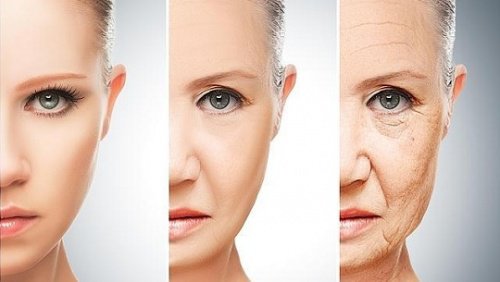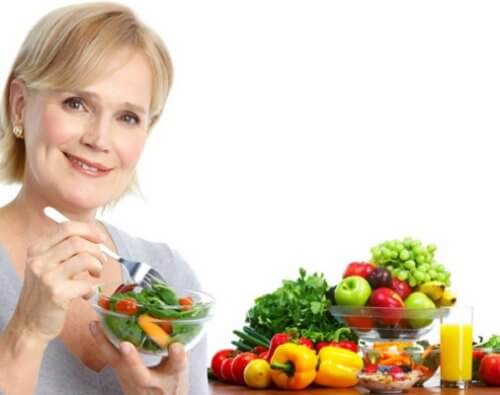Changes in Your Eating Habits at 30, 40, 50, and 60


Reviewed and approved by the pedagogue in physical education and nutritionist Elisa Morales Lupayante
At every stage in life, your body goes through a series of changes and you have to deal with each of them. Some of the most noticeable ones are changes in your eating habits; the way that you eat will begin to be altered.
This is the result of a complex interaction between hormones, lack of sleep, stress, or a change in your daily habits.
Some of these factors aren’t easy to avoid. But we’ll describe below some of the changes in your eating habits and appetite that will appear through the coming decades.
You’ll learn that you’re not the only person who is experiencing these things and most of the time, they’re totally normal.
Changes in your eating habits in your 30s

When you enter this decade there are two extremes: you may have the uncontrollable desire to eat everything that’s put in front of you, or you might not have the desire to eat anything at all.
The anxiety hormone, cortisol, can influence whether you lean toward one of these two extremes. What happens is that because of the increase or decrease of your hormones due to your menstrual cycle, your appetite changes.
Around the age of 35 you’ll usually experience a stark change in your weight.
A loss of vitamins and nutrients can trigger the desire to eat chocolate, candy, sweets, and salty foods. If you’re not careful to control these cravings, you can gain a lot of weight. You may also face a deficiency in magnesium and calcium.
It’s also during this time in life when many women choose to conceive. They may also eat more due to anxiety about their age.
In reality, it’s not necessary to eat extra food to benefit your baby. Pregnancy should not be an excuse to eat more. What’s important is eating healthy foods that are rich in calcium, iron, and vitamins.
Your body is strong enough to support your baby by itself.
Do not forget to read:
6 Rare Effects of Anxiety
At 40 years old
When you reach the age of 40 you’ll experience many changes, not only psychological changes but also physical. You must be aware that it’s not logical to expect you to weigh the same as you did when you were 20.
You should also accept that no matter what diet you’re on, you should eat more fruits and vegetables, drink milk, and although it might be painful, stop eating junk food.
You’re more prone to digestive problems during this decade and your appetite will increase considerably.
You can also develop insulin resistance during this time. When your body doesn’t secrete enough insulin, sugar levels increase in your bloodstream instead of being stored in the cells.
If your cells don’t receive the sugar they need, your body expends energy found elsewhere, which results in changes in your eating habits and especially your consumption of carbohydrates.
At age 50

That’s why it’s not uncommon for many women at this age to start gaining weight uncontrollably.
Nevertheless, this is not entirely negative. It can become a protective instrument or a defense mechanism against brittle bones and weak muscles.
That’s because fat can protect you from falls or bruising that might actually be more harmful at this age.
We recommend you choose the healthiest road: keep a balanced diet and increase your intake of calcium-rich foods. Although fat can protect your bones, it negatively affects your health.
At age 60
Despite what you might have heard, your stomach doesn’t shrink with age. But there may be some changes in the elasticity of your abdomen that happen with aging.
This happens because your digestive system sends the brain the wrong signal that you’ve eaten enough, when in fact you have not. Because of this, you’ll notice changes in your eating habits that cause you to eat less than before.
When you reach this age, taking care of your weight is essential. If you’re carrying around extra pounds you have a higher risk of falling, staying in the hospital, and even death.
If you’re underweight or have a low weight, it could be a sign of an underlying chronic condition.
Want to know more? See:
5 Causes of Premature Aging
Watch your habits to make sure they’re not extreme

The human body tends to build up abdominal fat more easily the older you get.
You start to lose aerobic and cardiovascular capacity.
After 35 years, a person leading a sedentary lifestyle with poor nutrition from their food begins to grow weaker.
That’s why it’s essential to be aware of the changes in your eating habits as you age, so you can take the appropriate precautions.
All cited sources were thoroughly reviewed by our team to ensure their quality, reliability, currency, and validity. The bibliography of this article was considered reliable and of academic or scientific accuracy.
- Srour B., Fezeu LK., Kesse Guyot E., Alles B., et al., Ultra processed food intake and risk of cardiovascular disease: prospective cohort study. BMJ, 2019.
- Singer J., Grinev M., Silva V., Cohen J., et al., Safety and efficacy of coffee enriched with inulin and dextrin on satiety and hunger in normal volunteers. Nutrition, 2016. 32 (7-8): 754-60.
This text is provided for informational purposes only and does not replace consultation with a professional. If in doubt, consult your specialist.








